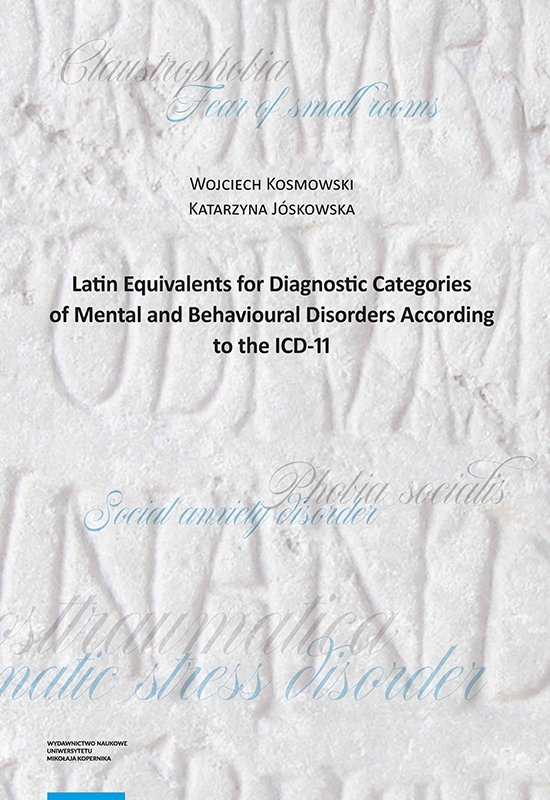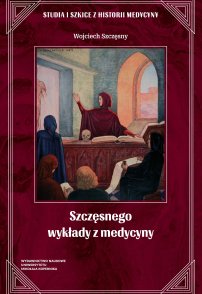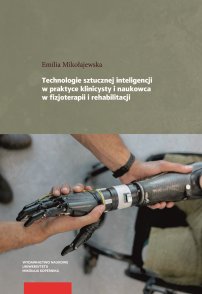Adjunct Professor at Nicolaus Copernicus University in Toruń, Collegium Medicum in Bydgoszcz. He works in the Department of Psychiatry as a psychiatric consultant at the University Hospital in Bydgoszcz. He graduated from the medical faculty of the Medical Academy in Bydgoszcz in 1994 and theological studies in 1995 from the Primate’s Institute of Christian Culture in Bydgoszcz, a branch of the Pontifical Faculty of Theology in Poznań. In 2001, he obtained the title of specialist in psychiatry, and in 2011 – specialist in psychiatry of children and adolescents. In 2015, he earned a doctorate in pastoral theology at the Catholic University of Lublin and in 2017 – in medicine (CM NCU). He has written over 120 scientific papers and actively participated in over 50 national and international scientific conferences in the field of psychiatry. His research interests include classification in psychiatry, medical ethics, and clinical aspects of alcohol dependence.
Latin Equivalents for Diagnostic Categories of Mental and Behavioural Disorders According to the ICD-11
autorzy:
Rok wydania:2023
Nr wydania:pierwsze
Liczba stron:108
ISBN:978-83-231-5172-2
eISBN:978-83-231-5173-9
Format:210 x 297 mm
DOI:
https://doi.org/10.12775/978-83-231-5173-9














